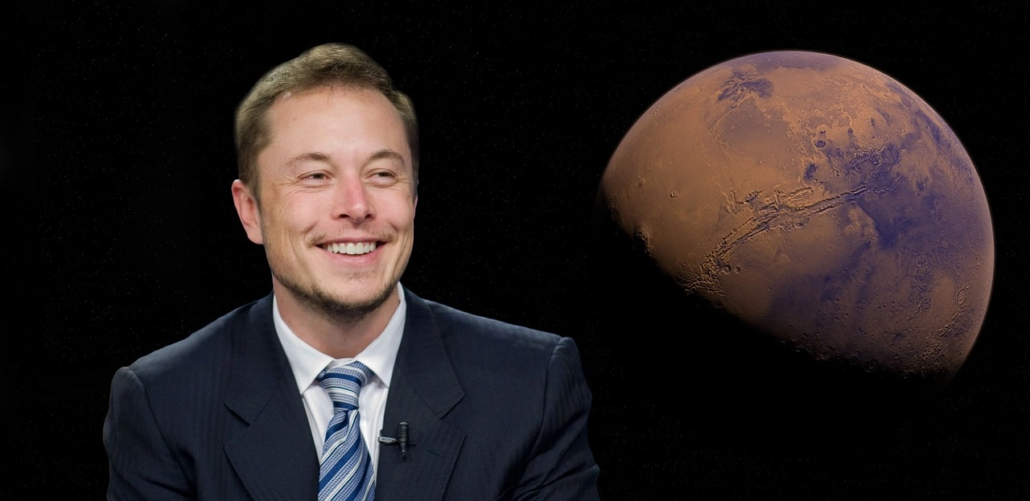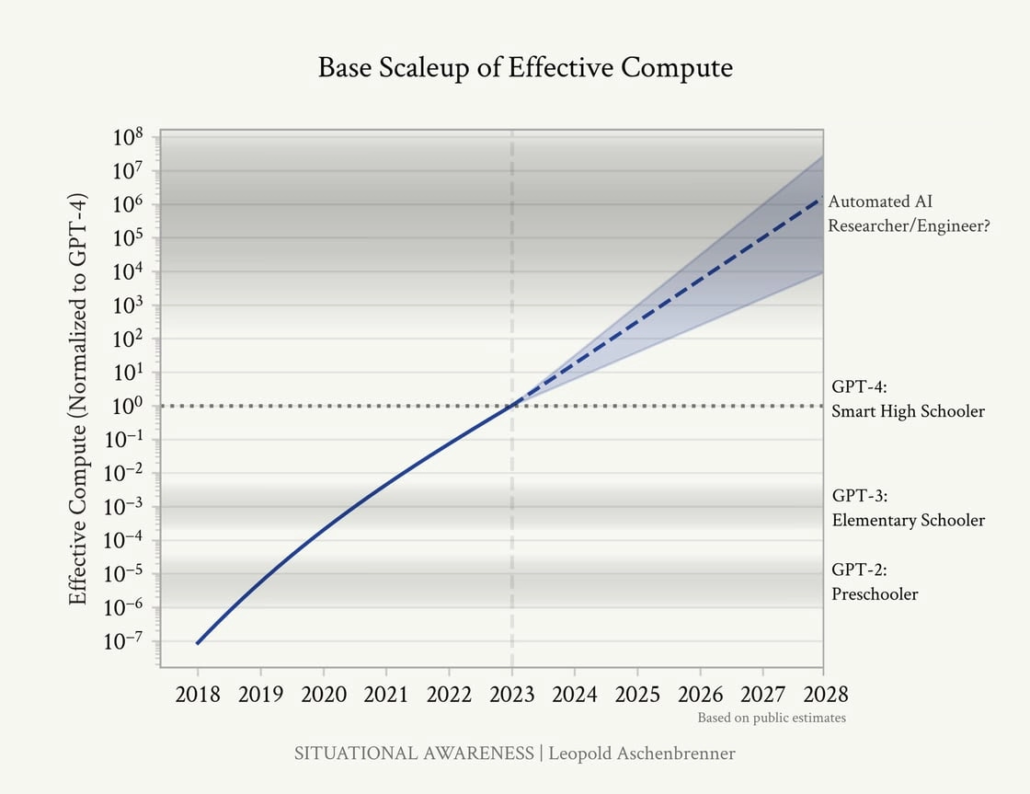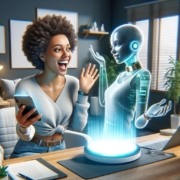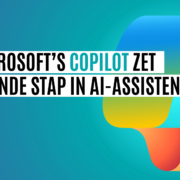AI and employment: the impact of AI on jobs
Last week several alarming reports came out about the huge impact of AI on jobs and employment. In this news blog around AI, we discuss the growing concerns about job losses and the 4 most important things you need to know as a company or employee about how to deal with these developments.

Increasing concerns about job losses
Elon Musk declared at Viva Tech 2024 in Paris that "probably none of us will have a job" thanks to AI. "If you want to do a job that feels a little bit like a hobby, you can do a job," Musk said. "But otherwise AI and the robots will provide all the goods and services you want."
According to him, a "universal high income" is necessary to make this future attractive.
McKinsey Global Institute released a report on the future of work, focusing on the impact of AI and skills needs in Europe and the United States through 2030. The emphasis is on both improving human capital and accelerating technology adoption to reap the full productivity benefits of AI.
Savings for businesses
McKinsey sees a changing labor market in which demand for workers in science, technology, engineering, math and healthcare occupations is expected to increase, while demand for office and manufacturing work will decrease. Up to 30% of current work hours could be automated by 2030 with the rise of AI. In addition, the company sees a great need to upgrade skills within companies. Technological and social-emotional skills are becoming more important, while the demand for physical and manual skills remains stable.
CEO of Klarna, Sebastian Siemiatkowski, shared a report that the company already managed to save some $10 million this year with AI by replacing some of the human work. He indicated that they spent less on photographers, stock photos and marketing agencies, for example, and that their marketing team, despite halving in size, produced more. Moments later, he deleted the post after receiving many negative comments.
Fear and worry
Avital Balwit, Chief of Staff at Anthropic, the company of chatbot Claude, received a lot of attention for her extensive article "My Last Five Years of Work," in which she states that she expects that all human labor could be automated by AI in the coming years:
"I work at a groundbreaking AI company. With each iteration of our model, I am faced with something more capable and general than before." "I am 25 years old. The next three years may be my last years of work. I am not sick, nor am I becoming a housewife, nor am I so fortunate financially that I am about to retire voluntarily. I am on the brink of a technological development that will probably mean the end of labor as I know it."
"The general reaction to language models among knowledge workers is one of denial. They cling to the ever-shrinking number of places where such models still struggle, instead of noticing the ever-expanding range of tasks where they have reached or surpassed human levels. Many will point out that AI systems do not yet write award-winning books, let alone patent inventions. But neither do most of us do these things."
"The economically and politically relevant comparison for most tasks is not whether the language model is better than the best human, but whether they are better than the human who would otherwise perform that task."
"But these systems will continue to improve at all cognitive tasks. The shared goal of the field of artificial intelligence is to create a system that can do everything. I expect we will achieve this soon. If I'm right, how should we think about the coming redundancy of work?"
"Should we face the possibility of its loss with sadness, fear, joy or hope? The overall economic effects of General Artificial Intelligence (AGI) are difficult to predict, and here I will focus on how people will feel without work-whether they will be, or can be, happy."
Warnings and predictions about Artificial General Intelligence
AI researcher Leopold Aschenbrenner, recently fired from OpenAI's "super alignment team" after he said he wrote a memo about a major security incident and shared it with two board members and other researchers', also shared his concerns. According to him, hardly anyone takes into account what is coming in the field of AI. He has written a comprehensive report on the strategic picture of AGI (Artificial General Intelligence). He also indicates that AGI is very possible by 2027: "You don't have to believe science fiction, just the trends in data."

Four priorities for AI adoption
According to the McKinsey report, companies have the following four priorities:
1. Understand the potential
Understand how AI can help automate and improve work processes. This includes estimating how much work AI can take over and the impact on roles and skills needed.
2. Plan a strategic workforce shift
After understanding the potential of AI, companies must prepare for these technologies. This means determining the workforce and skills needed, and identifying potential future talent shortages.
3. Prioritize people development
Ensuring that companies can attract and retain the right talent to support business strategy during the transformation to an AI-driven environment. This may mean investing more in educating and training their employees in AI skills.
4. Leadership in automation technologies.
Leaders must continue to educate themselves on automation technologies to best support their businesses. This includes educating senior managers about the impact of these technologies and creating a collaborative strategy to generate value for both the company and its employees.
Invitation to monthly AI inspiration sessions
There are many different views among leading AI researchers, entrepreneurs and economists about the impact of AI. No one can say for sure what the next few years and beyond will look like; there is still a lot of guesswork and assumptions. However, it is becoming increasingly clear that the possibilities and impact are growing with each new model that is released, and that these new models are succeeding each other faster and faster.
Assuming that everything will stay the same, or that AI will only cause gradual changes as with previous technologies, is unlikely to lead to favorable outcomes. It is extremely important to prepare for different future scenarios.
When it comes to AI, the world can be roughly divided into doomsayers and optimists, and into the CAN-NOTs and the CAN-WELLs.
Some particularly look at what AI cannot do yet or are afraid of it and use that as a reason not to get started. Others, on the contrary, look at the possibilities and start experimenting in full force.
We would like to look ahead with you, discuss the latest news and updates, share experiences, inspire each other, take advantage of what is possible and prepare as best we can for the changes that are coming.
That's why we engage in monthly online AI inspiration sessions, on the last Friday of the month at noon.









